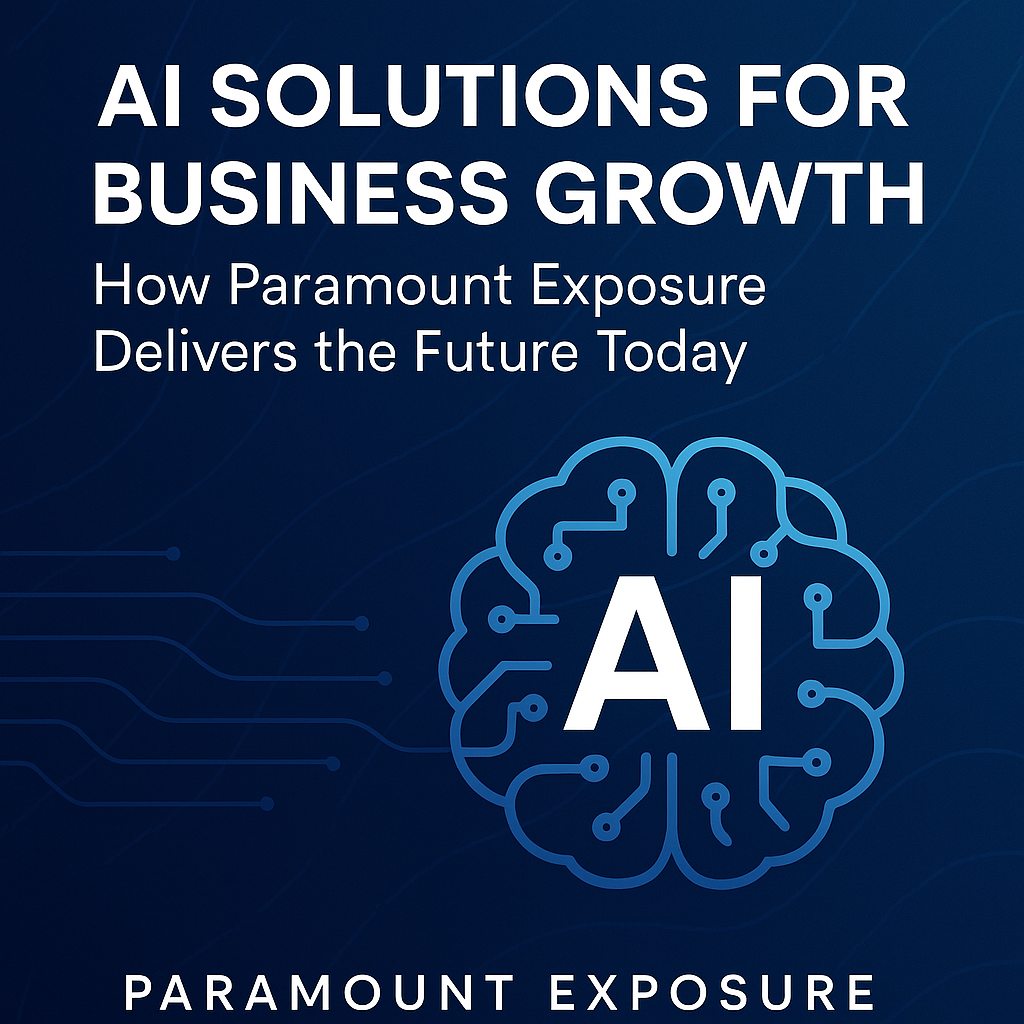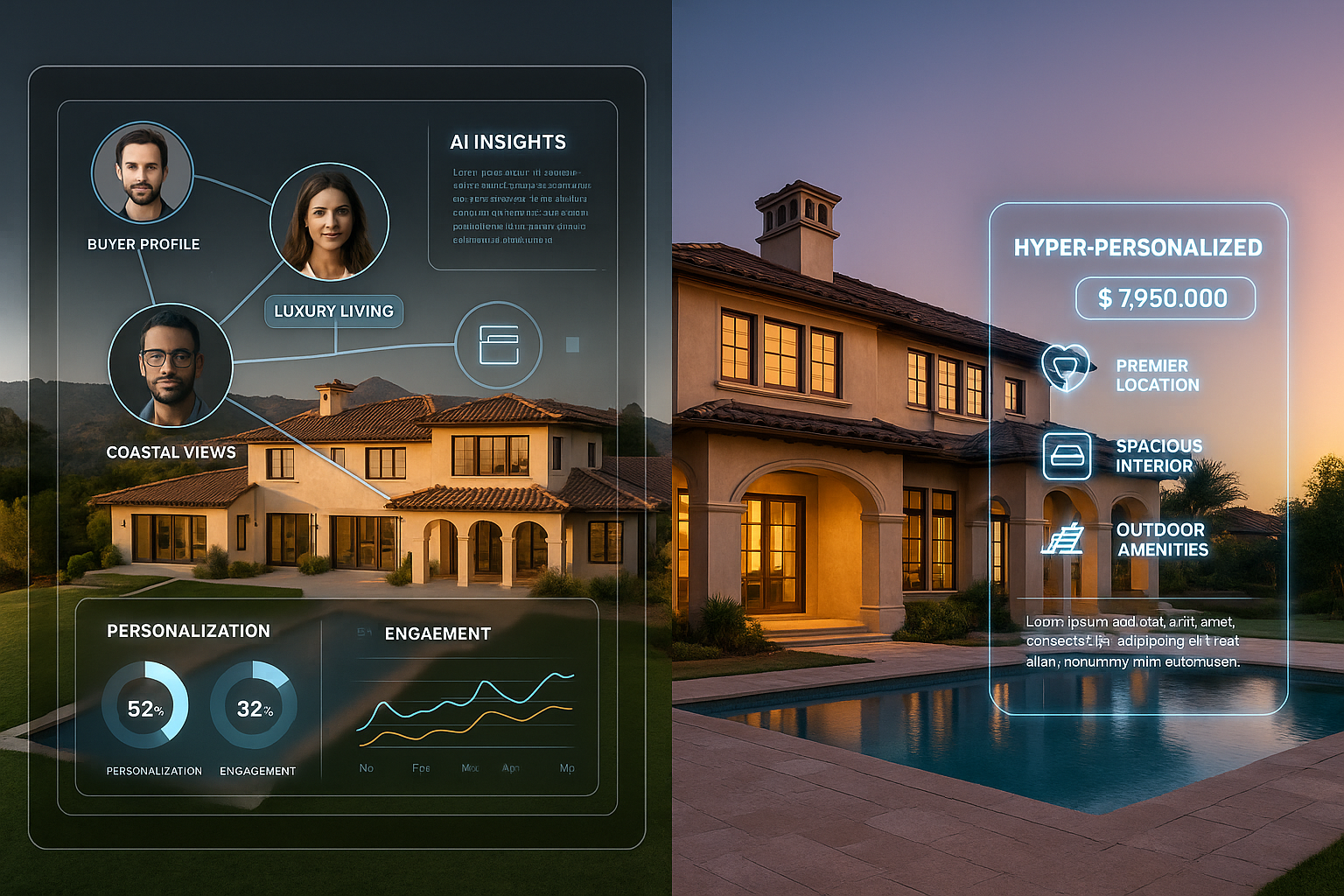Blog

In the upscale communities of Scarsdale and Westchester, NY , maintaining a prestigious digital presence is not merely beneficial—it's essential. Paramount Exposure leads the charge in luxury digital branding, web development, and digital strategy, tailored exclusively for discerning businesses in Scarsdale, Westchester, and beyond. Unmatched Digital Branding for Scarsdale and Westchester Paramount Exposure provides exclusive, luxury-focused digital branding solutions designed to amplify your business’s reputation, influence, and online visibility. We deliver bespoke services to an elite clientele, including luxury retailers, high-end home remodelers, premium law firms, and upscale medical spas. Our local expertise ensures your business connects meaningfully with Westchester County’s affluent demographic. Cutting-Edge Web Development & Design A sophisticated website isn't optional—it's mandatory in today’s luxury market. Paramount Exposure’s web development services use state-of-the-art technology and elegant, minimalist designs to reflect your brand’s premium status. Whether your target market resides in Scarsdale, Rye, Greenwich, or Chappaqua, our websites are meticulously crafted to appeal to upscale clientele. SEO Strategy Tailored for Westchester County Dominating search rankings in Westchester and Scarsdale is Paramount Exposure's specialty. Our comprehensive, localized SEO strategies place your business prominently at the top of search results for luxury services in Scarsdale and throughout Westchester County. Paramount Exposure’s keyword research, competitor analysis, and content strategies ensure maximum visibility and traffic from affluent local consumers. Key SEO Benefits from Paramount Exposure: Local SEO Mastery: Precise optimization for "luxury digital branding in Scarsdale," "Westchester high-end web design," and related niche keywords. Exclusive Content Marketing: Premium-quality, keyword-rich content that attracts and retains affluent Westchester County customers. Technical SEO Perfection: Ensuring your site is lightning-fast, mobile-optimized, and fully aligned with Google's latest algorithms. Results-Driven Digital Marketing Our services include: Social Media Branding and Management Reputation and Online Presence Management Exclusive PPC Campaigns Targeting Affluent Audiences Personalized, Premium Client Experiences Luxury branding isn’t just about aesthetics—it’s about experience. At Paramount Exposure, we provide unparalleled service. Our personalized client relationships, meticulous attention to detail, and dedication to excellence have solidified our position as the premier digital branding agency in Scarsdale and Westchester, NY. Why Westchester Businesses Choose Paramount Exposure Businesses in Scarsdale and Westchester choose Paramount Exposure for our: Proven Track Record: Extensive portfolio showcasing luxury brands across various sectors in Westchester County. Local Expertise: In-depth understanding of the unique preferences of Westchester's elite clientele. Customized Approach: Tailored strategies specifically designed for the luxury market in Scarsdale and surrounding areas. Transform Your Digital Presence Today Elevate your brand’s digital footprint and dominate your market in Scarsdale and Westchester with Paramount Exposure. Our strategic, luxury-focused digital branding services are designed to position your business at the forefront of the digital landscape. Ready to stand out in Scarsdale and Westchester’s competitive luxury market? Contact Paramount Exposure today, and let’s discuss how we can redefine your brand’s digital excellence.









